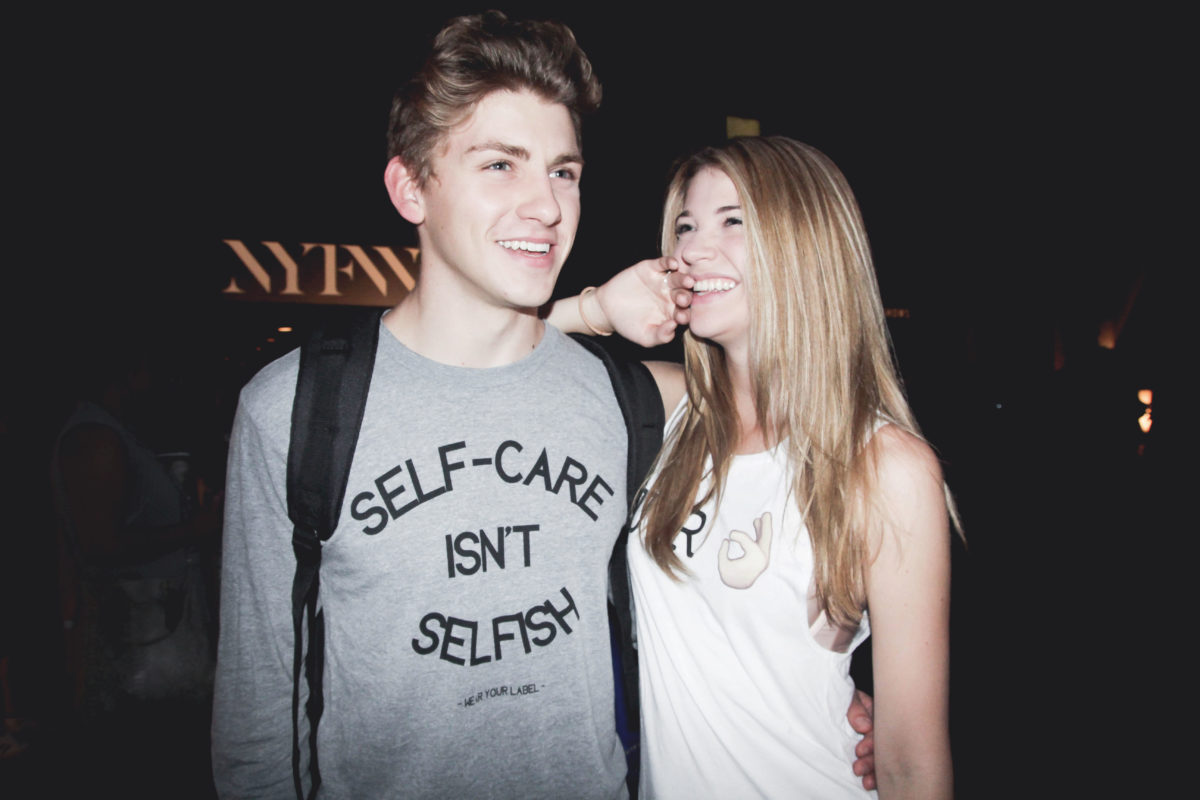
After spending eight hours listening to different heights, weights, and measurements – and not learning anything about the models who were auditioning – Kayley Reed and Kyle MacNevin co-founders of Wear Your Label knew there had to be a better way to find people to represent their brand.
Showcased in Halifax and even New York’s fashion week this year, they had a desperate need for models, but none of the traditional ones felt right. With a brand as unique as Wear Your Label, they wanted to make sure their models didn’t form to the standard molds of the fashion industry.
Soon after the model call, Reed and MacNevin thought of the idea to cast “Role Models” to wear their brand.
A Role Model is a person that is affected by a mental illness or is a supporter to someone that has one. They are an advocate for positive mental health and wants to help end the stigma around it.
One of Wear Your Label’s Role Models, Nicki Palmer, struggled with math because of his learning disability, but it didn’t slow him down or define who he was.
“Through high school I grew up with short term memory, like Dory from Finding Nemo,” Palmer said.
One day while working the McDonalds drive-thru, Palmer received a job offer to work at a bank, an opportunity someone with a learning disability wouldn’t normally receive.
“It’s something when I was younger I never thought I would be doing, and it’s really cool that I’m able to do that now, because I truly became myself this past year, and coming out [with my learning disability] is something that totally changed me as a person,” Palmer said.
Wear Your Label defines themselves as a ‘conscious clothing line’. It was created two years ago by UNB students Kayley Reed and Kyle MacNevin, through their love of fashion and advocacy for positive mental health.
They wanted to create a brand that would spark conversations and make people feel more comfortable talking about their mental health.
“We just wanted to move away from the traditional fashion models, and get people associated with our brand, that are real people and have real stories,” Reed said.
Their goal is to make Role Models people who the public can look up to on the catwalks or in the streets. They’re supposed to encourage open discussion of mental health.
To stress the different approach in fashion shows, a spoken word artist tells stories about mental health to tie in with the messages printed on the models’ shirts.
“It’s this experience that gets you inspired and feels relatable too, versus something that is so superficial and isolated,” Reed said.
